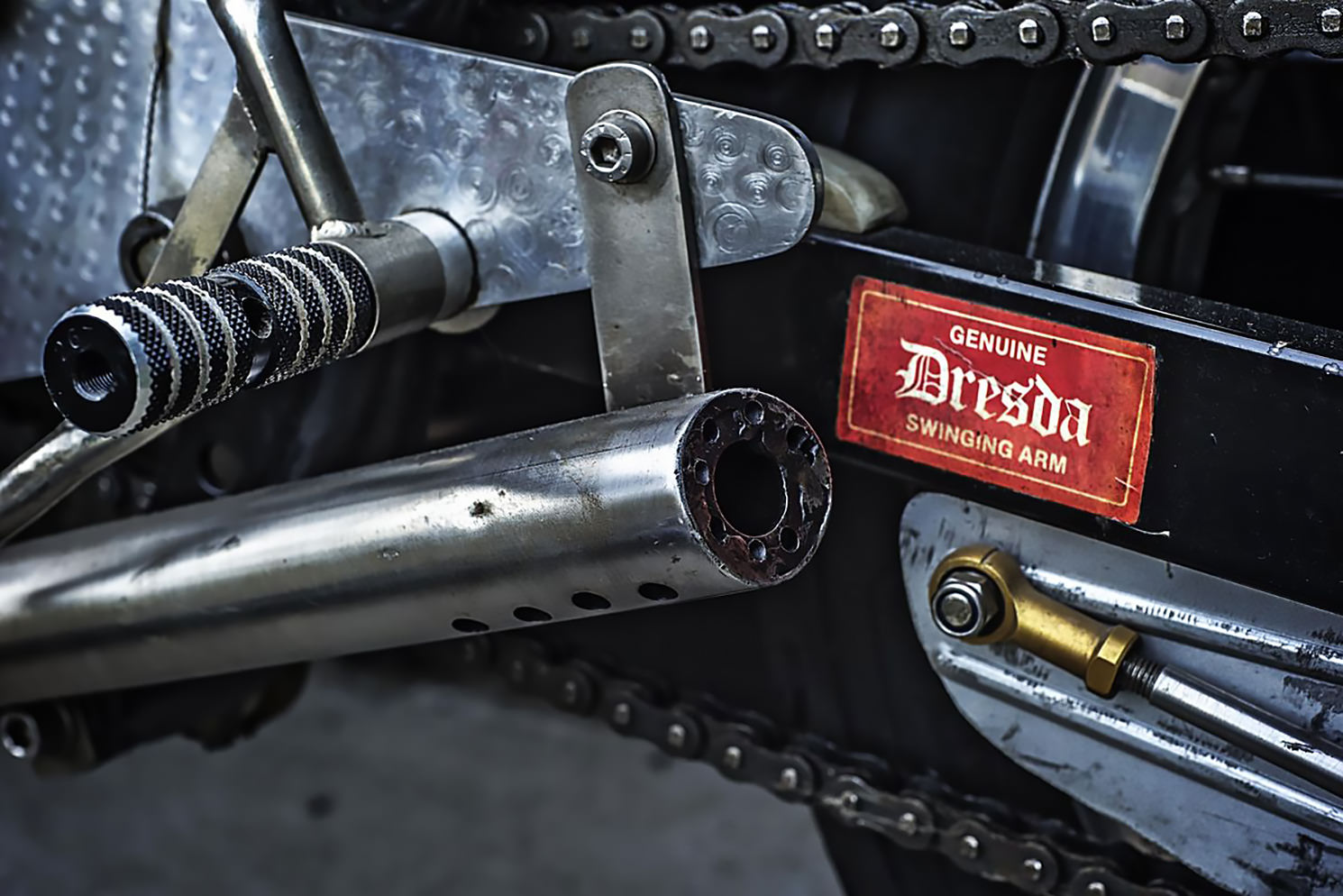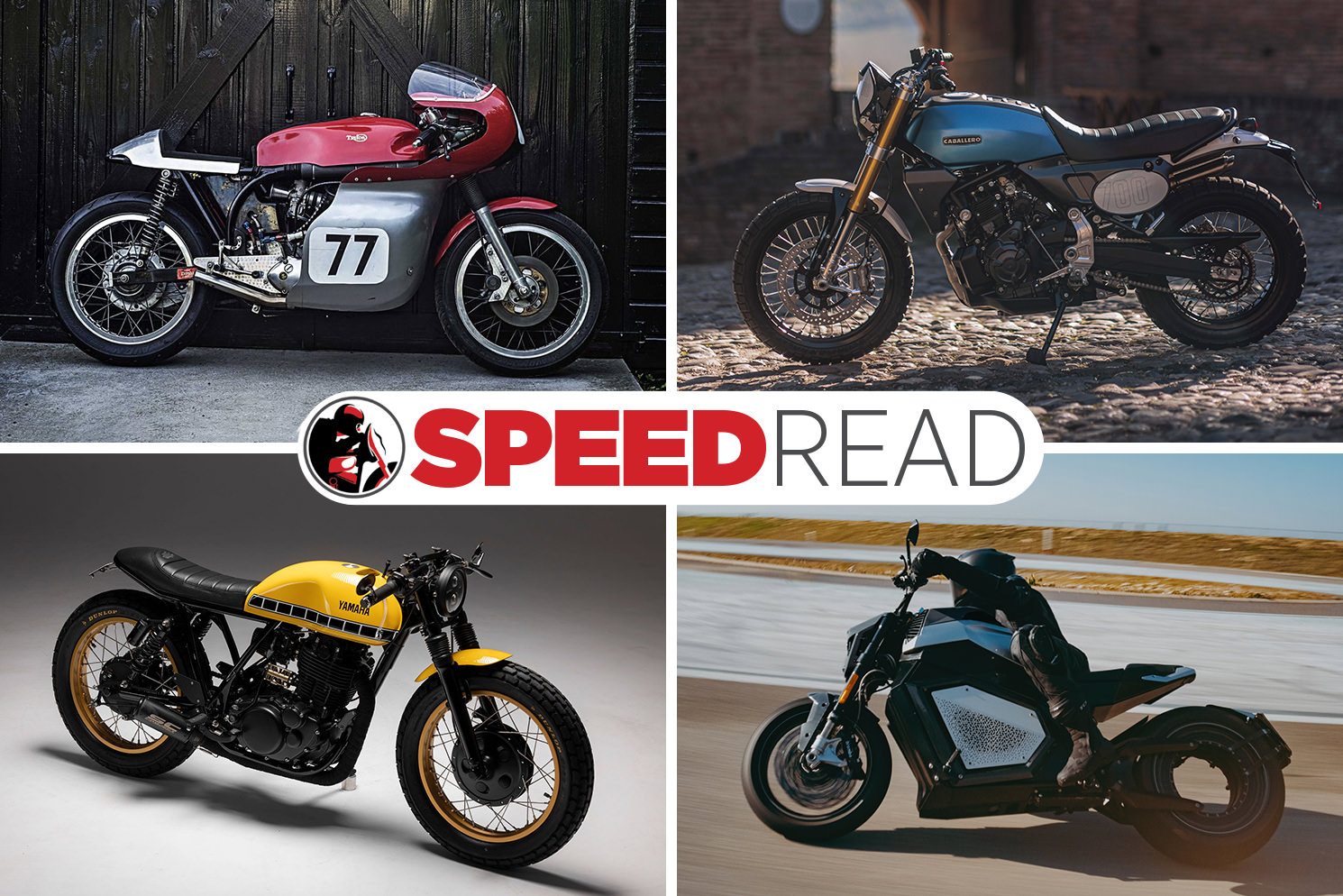
We’re feeling both retro and futuristic this week, so we’ve rounded up bikes that cover the full spectrum. Leading the charge is Verge’s new Mika Häkkinen edition electric bike, followed by the new Fantic Caballero 700 scrambler. We then profile a Yamaha SR400 from Australia, before coming in to land with a fetching Triton from France.
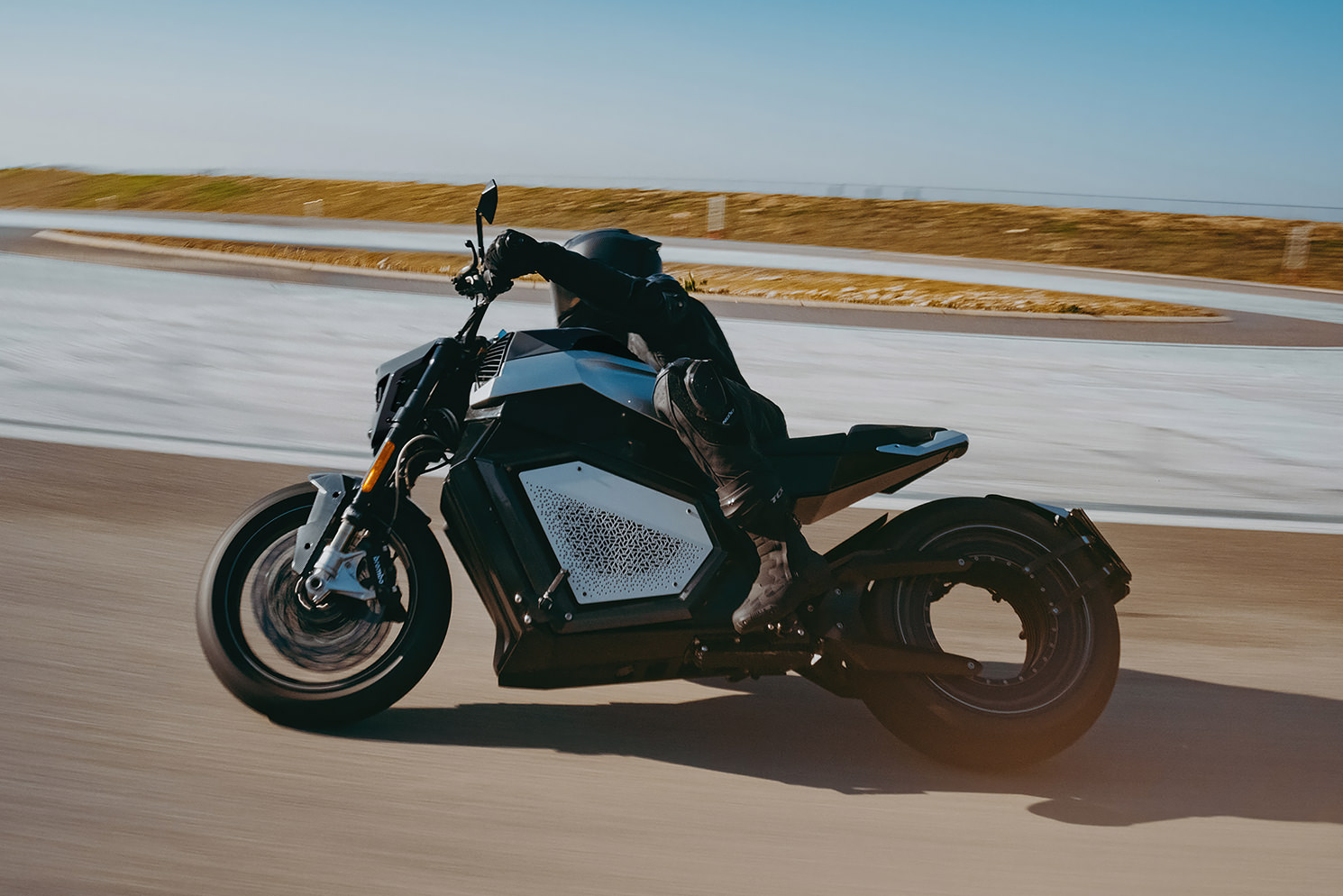
Verge Mika Häkkinen Signature Edition With an impressive 51 Formula One podiums and two championships to his credit with Lotus and McLaren, the Flying Finn knows mechanical excellence. So when Mika Häkkinen partnered with electric superbike manufacturer Verge Motorcycles, you knew it was something worth paying attention to.
Häkkinen joined forces with Verge early in 2023, and instead of just a plain endorsement, Verge announced that Häkkinen is now part of the company’s advisory board and has personally designed his own limited-edition bike. Capped at 100 units, each Häkkinen Signature Edition Verge comes with a numbered plaque with Mika’s signature, unique cosmetics and will sell for around $87,000.
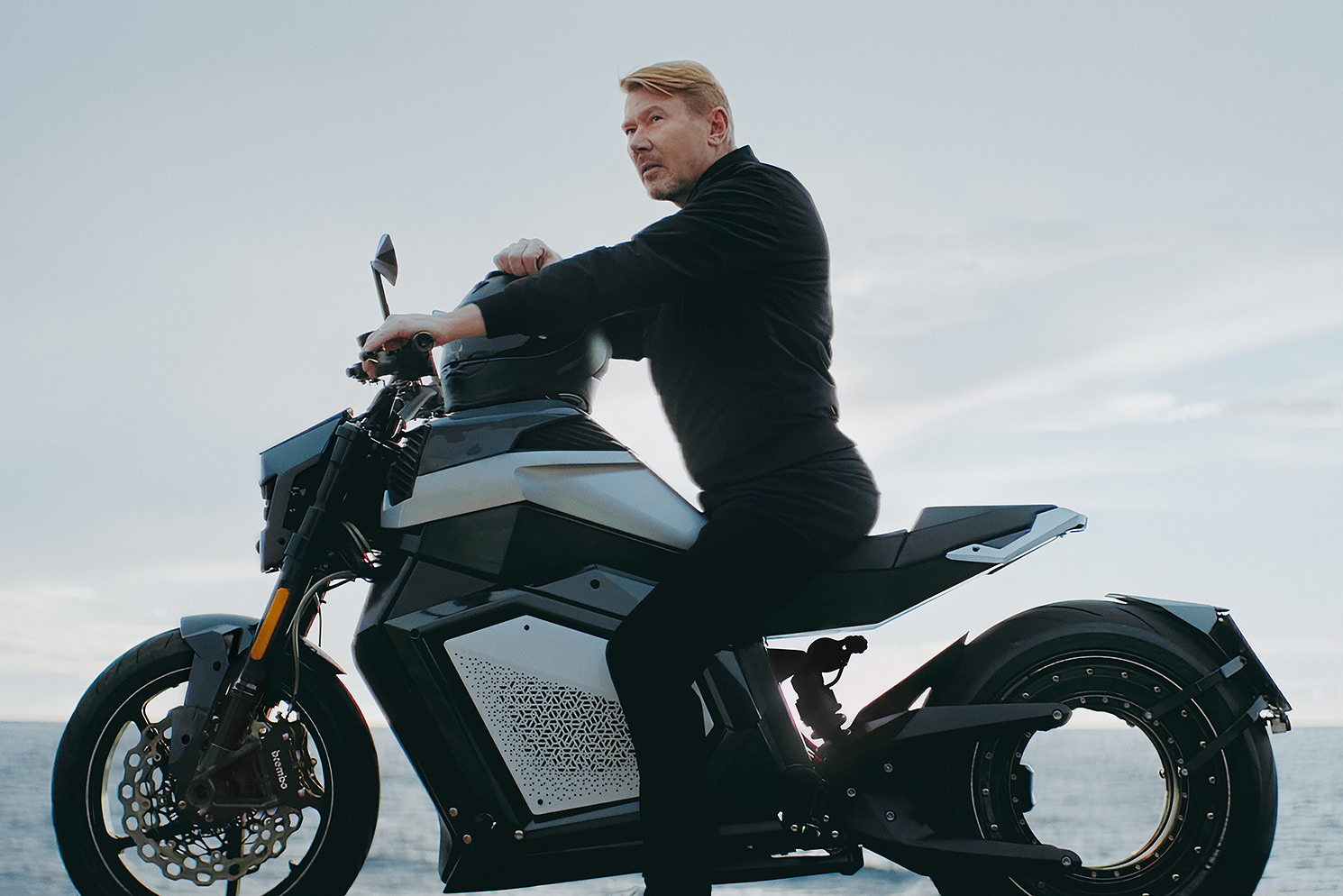
But for the uninitiated, it’s probably worth digging deeper into Verge before you decide if an F1-inspired electric bike is something you should care about. Including the Häkkinen Edition, Verge has a lineup of four TS electric bikes, ranging in power from 700 nM (516 lb-ft) to 1,200 nM (885 lb-ft). The TS Ultra is the company’s flagship offering, boasting the equivalent of 201 hp, a 0-60 mph time of 2.5 seconds and a top speed of 124 mph. Sounds pretty brutal.
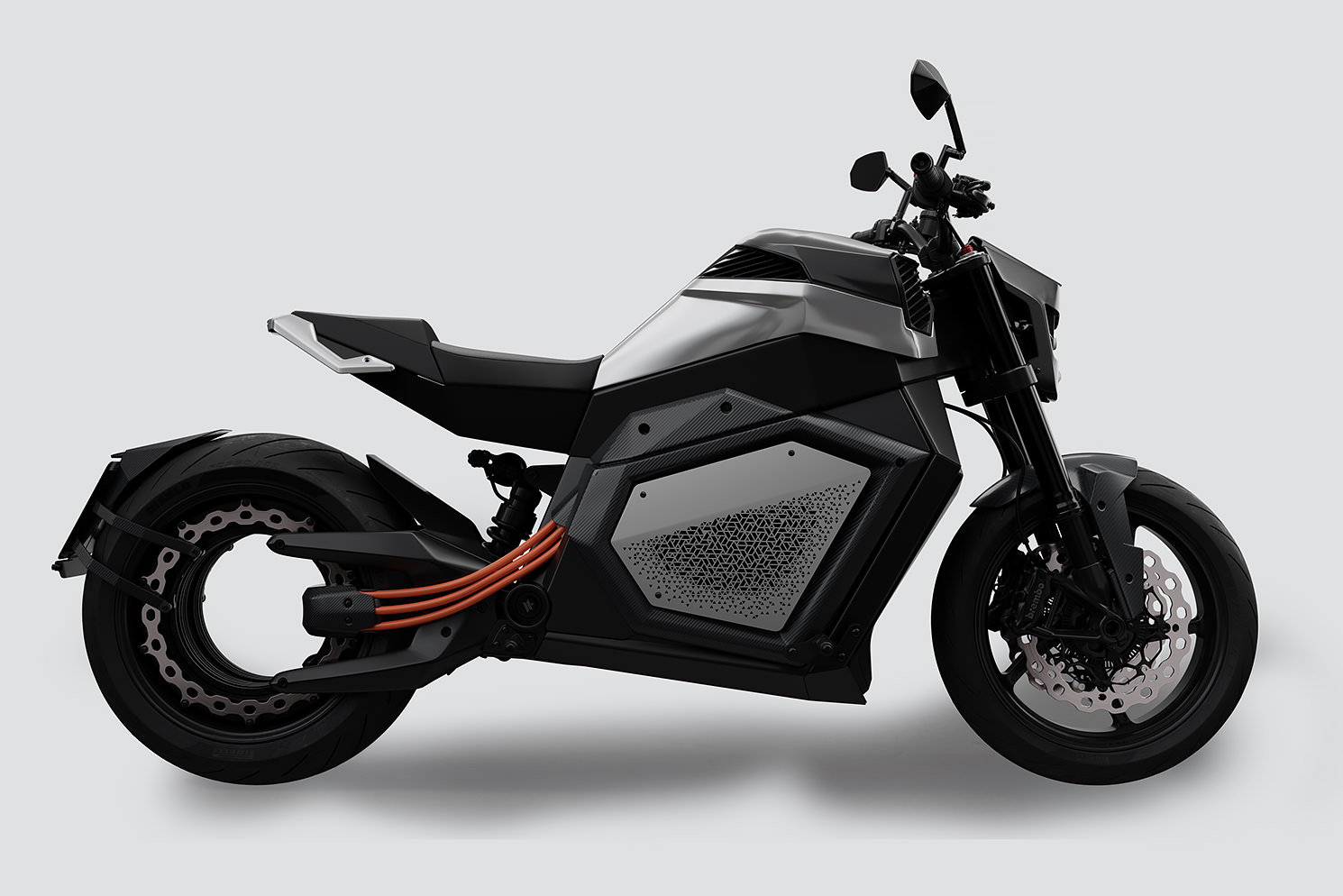
Also, how about that hubless rear wheel? That’s actually the motor, the world’s first hubless electric rim motor. All the guts are packed into it, ditching sprockets, chains and the like. The battery pack is nestled within the chassis and sends juice to the motor through three cables along the swingarm.
If you’re going to ride an electric motorcycle, it better take its inspiration from Tron right?
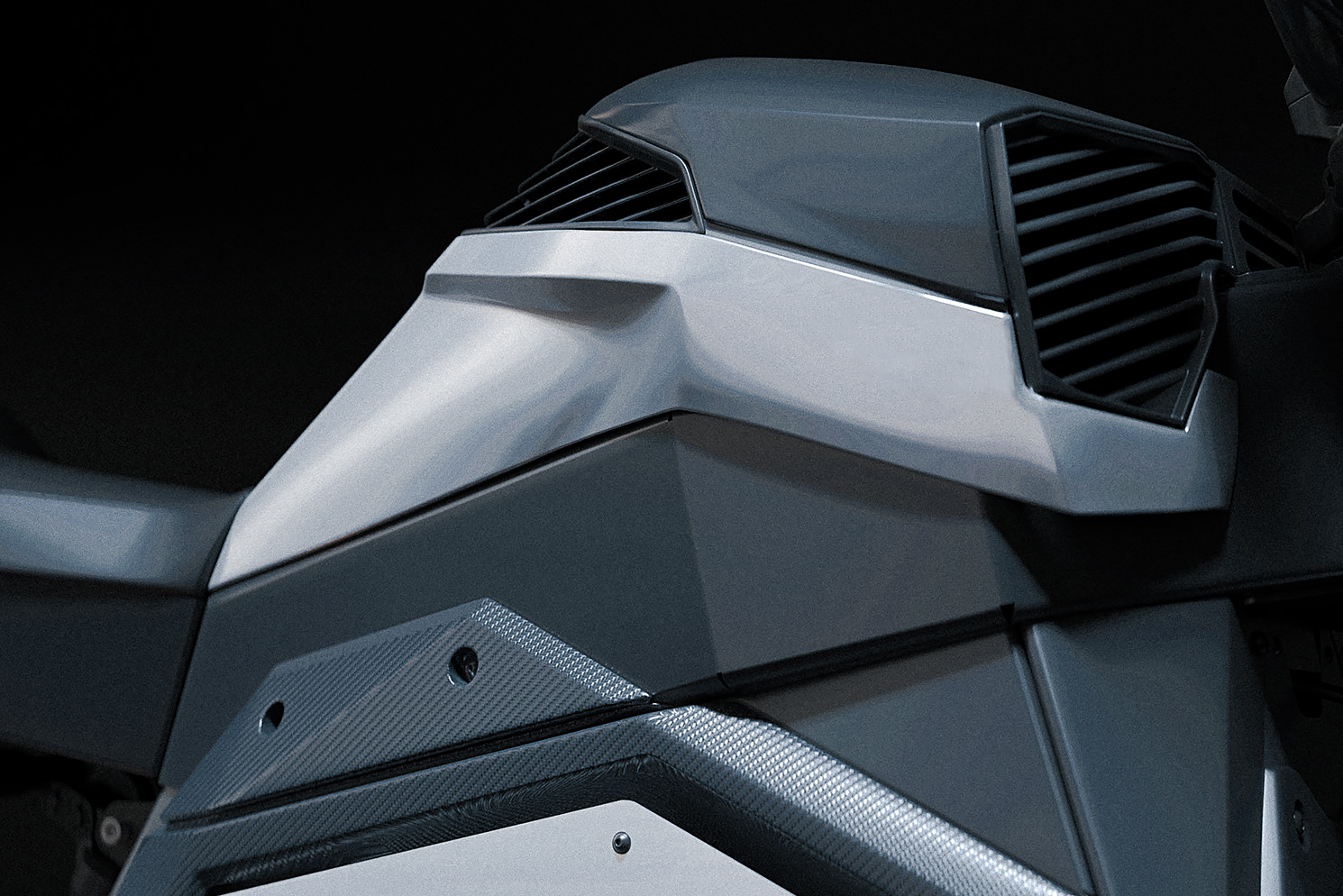
The Häkkinen Signature Edition is based on Verge’s TS Pro model, rated at 1,000 nM and 124 mph, and these special edition bikes receive a cosmetic upgrade by way of carbon fiber fairings and ceramic-coated gray and silver body panels. The rear suspension components receive a black-out treatment as well.
Boasting four unique riding modes, travel range up to 375 Km (233 miles) and fast charging capability that will bring you from 0 to 80% battery in 35 minutes, Verge Motorcycles certainly look to be one possible future. [Verge Motorcycles]
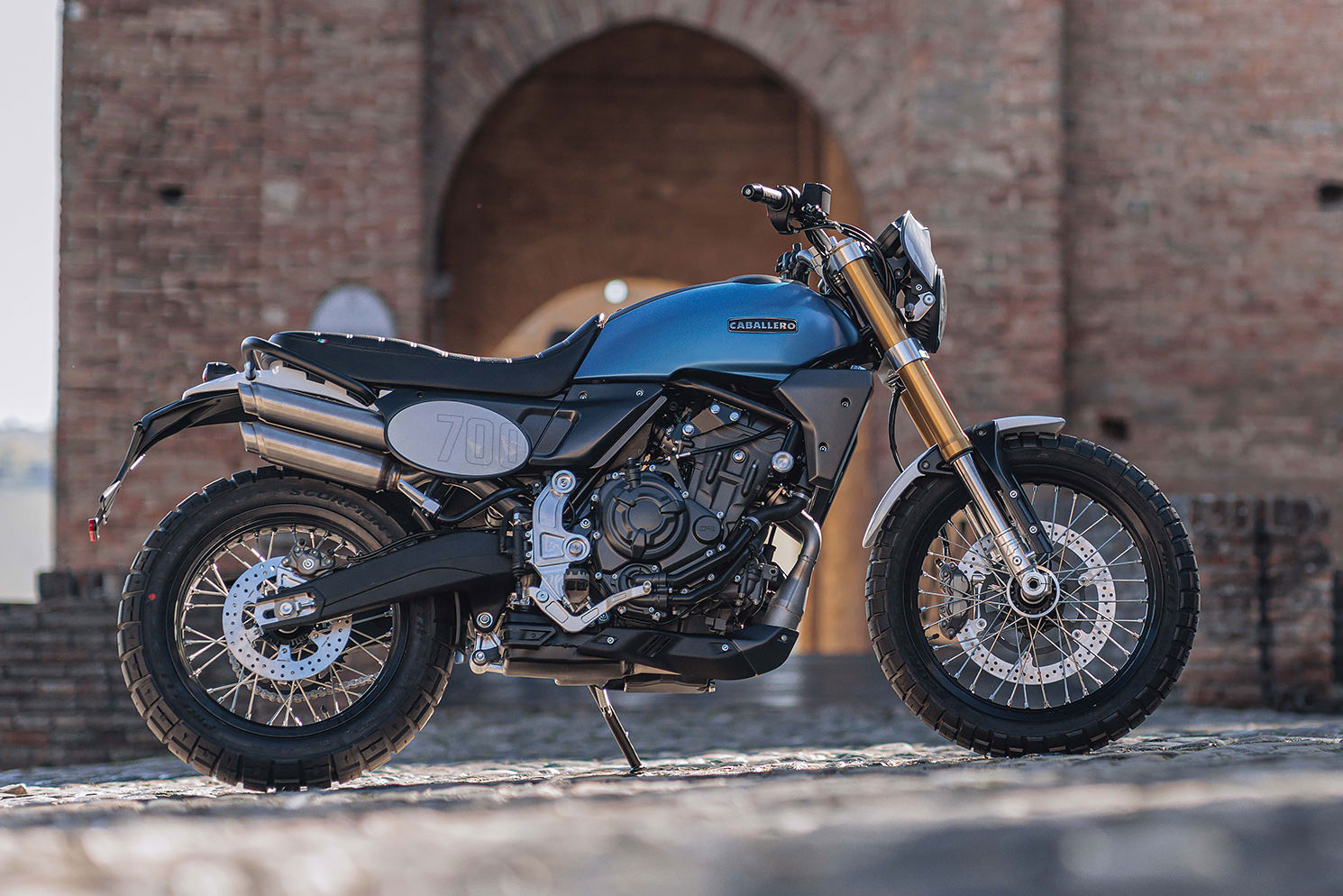
Fantic Caballero 700 What looks better than a Ducati Scrambler and goes as good as a Yamaha MT-07? The new Fantic Caballero 700, that’s what.
Announced some time ago, the Caballero 700 is finally about to go on sale. It’ll hit European dealerships from June—which makes the rest of us sad, because this genuinely looks like one of the best modern classic scramblers on the market.
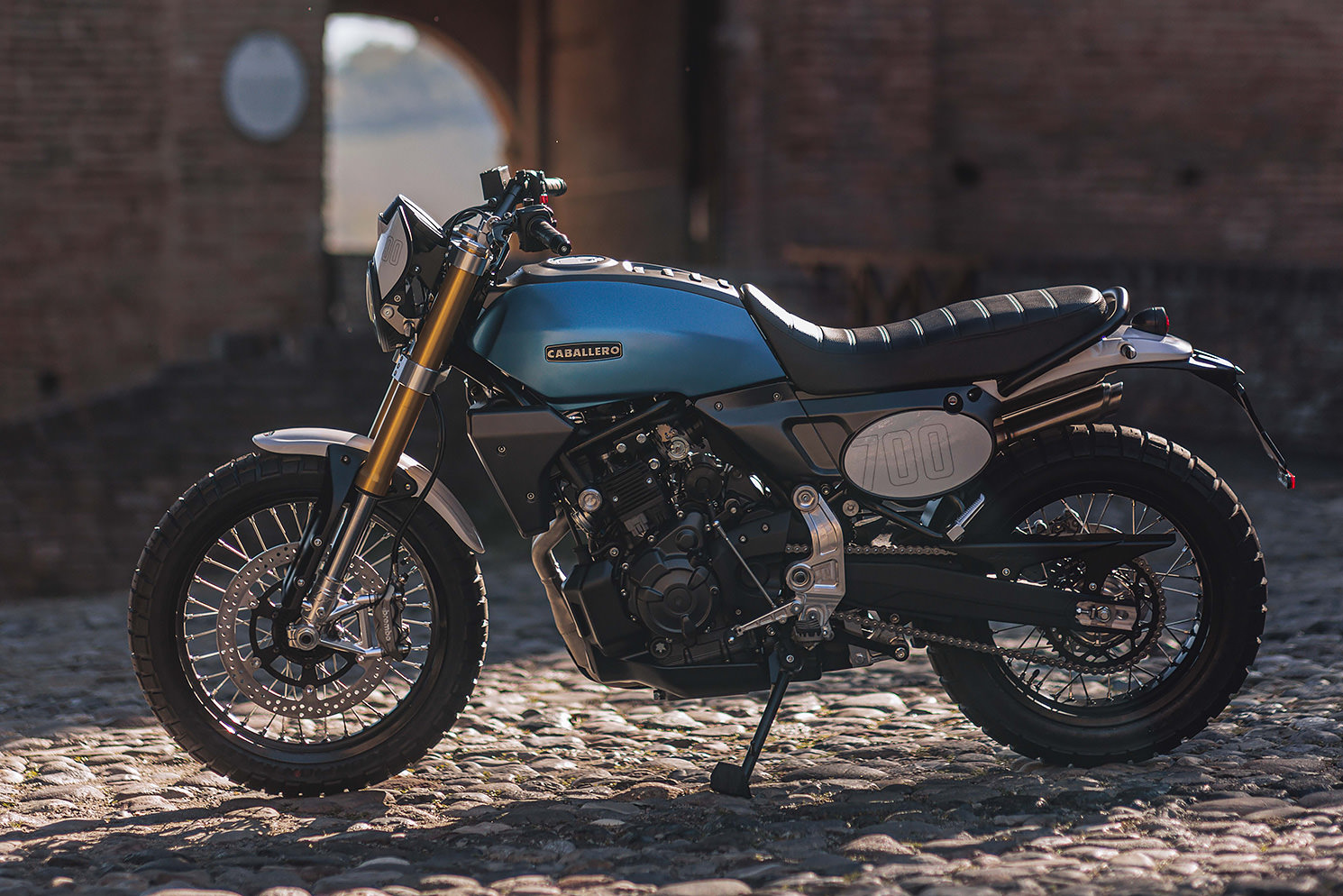
The Caballero 700’s chassis is an all-new unit from Fantic, but its motor is on loan from Yamaha. It’s the same 689 cc ‘CP2’ parallel twin mill that powers the Yamaha MT-07 (and the XSR700 and R7). It delivers 74 hp at 9,000 rpm and 70 Nm at 6,000 rpm, but, more importantly, it’s a peppy and responsive engine.
It also helps that the Caballero 700 sports a usable 19F/17R wheel size combo, with 150 mm of suspension from the Marzocchi components that sit at both ends. And it weighs just 175 kilos [386 lbs] dry, which is respectable for a mid-sized scrambler.
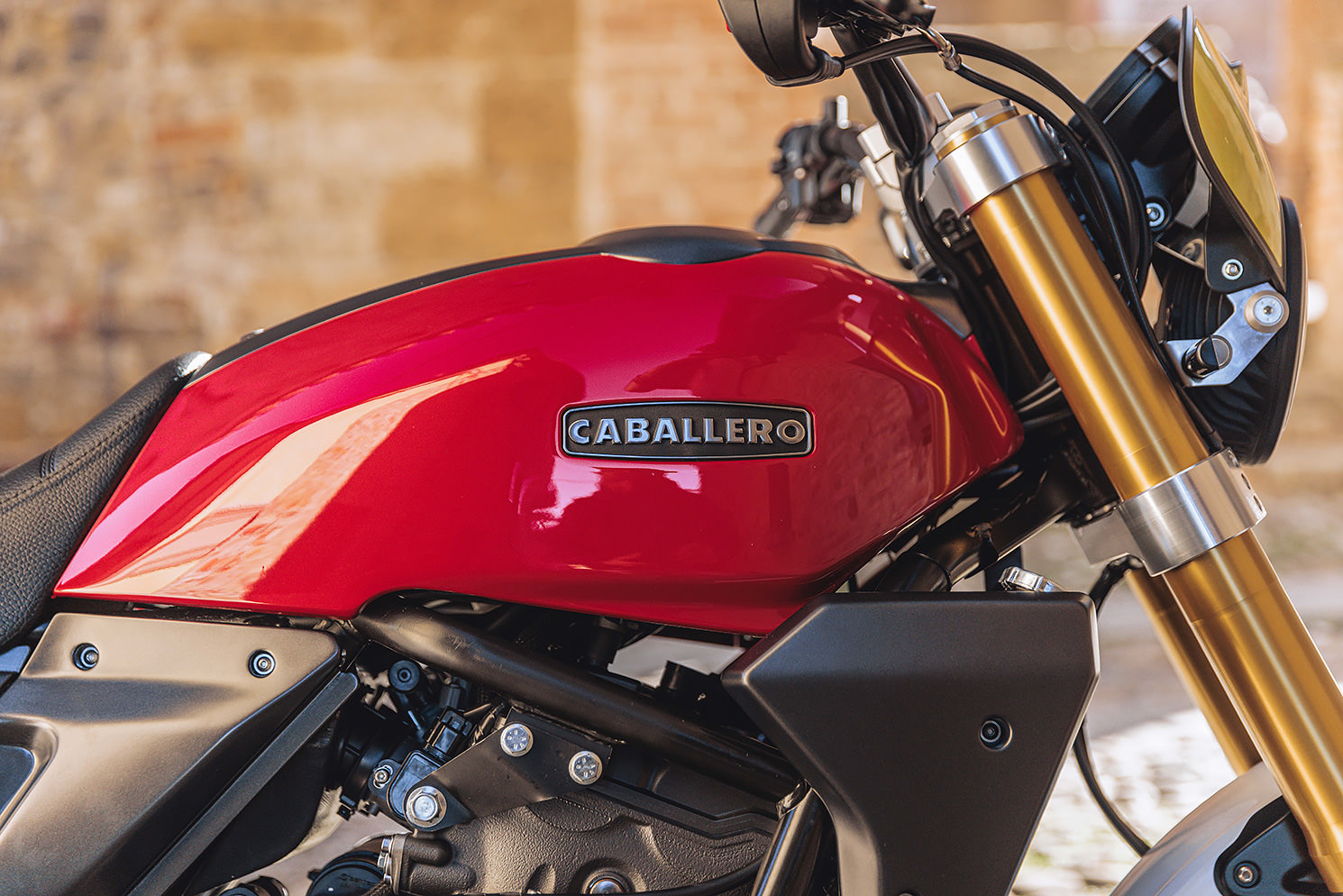
The European RRP of €9,990 also gets you LED lighting, a round 3.5” TFT display, plus a full suite of electronic rider aids that includes cornering ABS and traction control, and three riding modes. It’s the first Fantic to offer this level of modern tech, but they haven’t gone overboard; named simply ‘street,’ ‘off-road’ and ‘custom,’ the riding modes are easy to figure out.
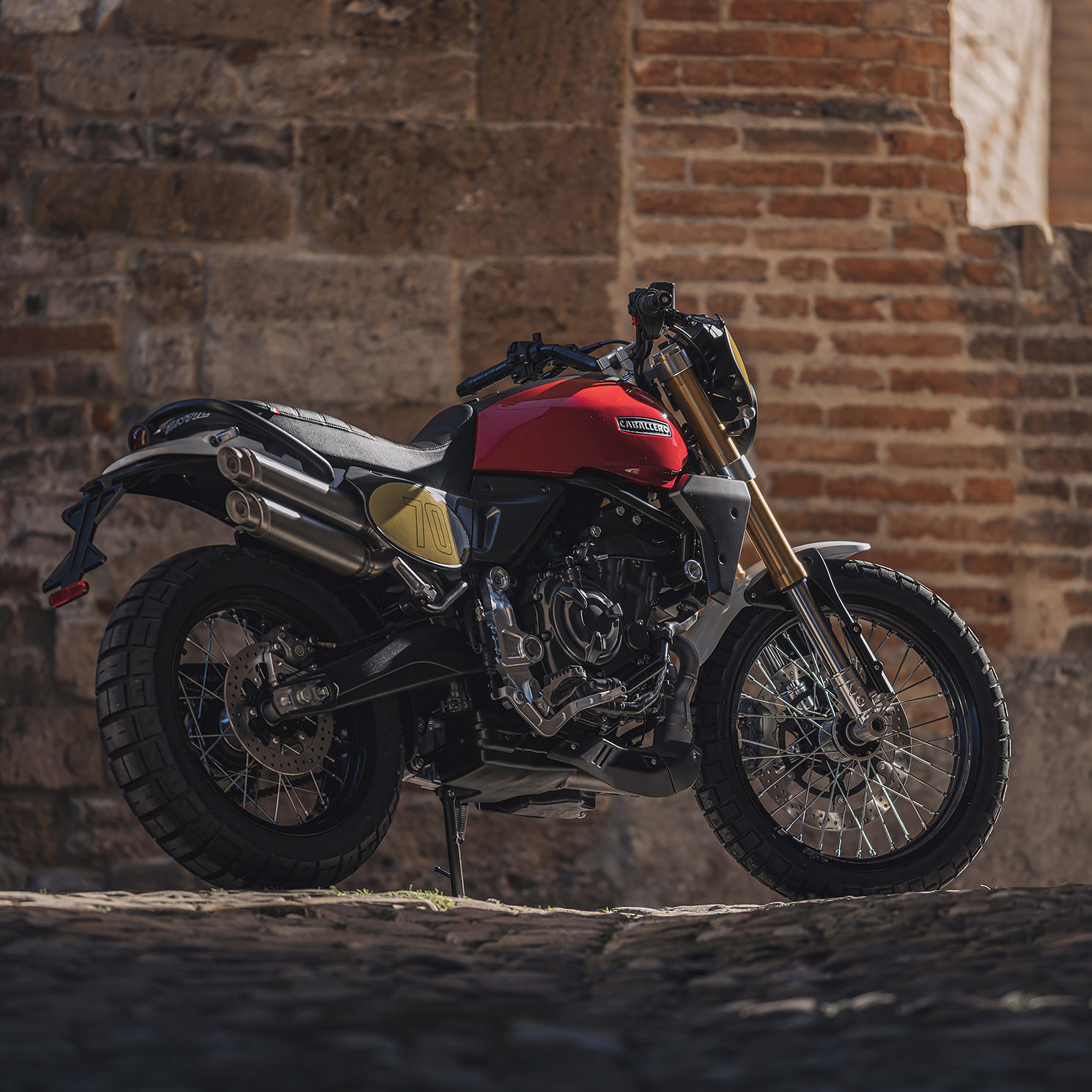
But what really has our tongues wagging is how good the Fantic Caballero 700 looks. Available in red or blue, it nails the neo-retro scrambler look, despite the clutter of its ultra-modern drivetrain.
In fact, it’s probably the best-looking bike to sport this particular engine. Wouldn’t you agree? [Fantic Caballero 700]
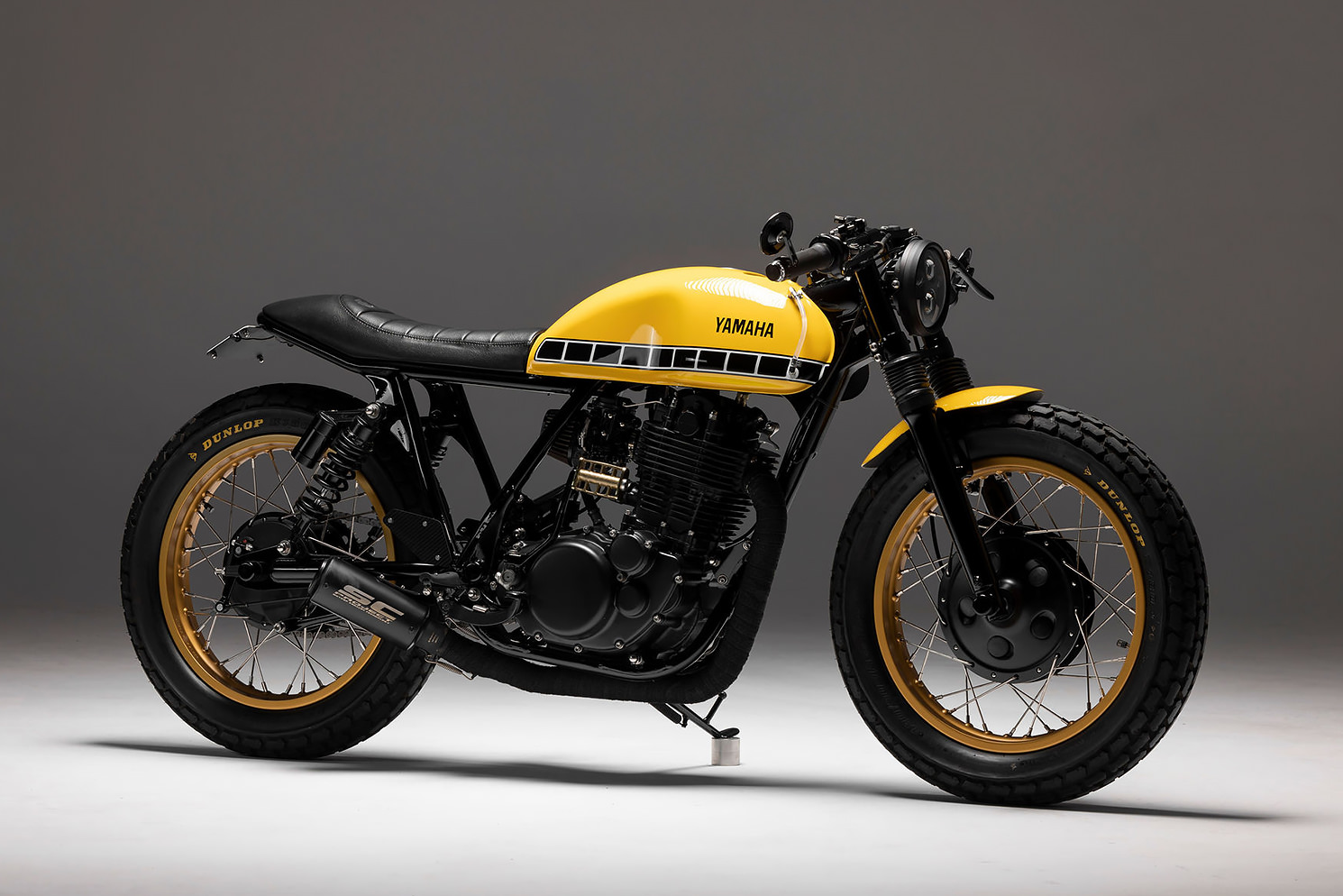
Yamaha SR400 by Black Cycles Often unloved and undermaintained, our affordable commuter bikes see a whole lot in their years of chewing up road grime and sitting in the elements. Years after its sensible product lifespan passed, this Yamaha SR400 was scooped up by Black Cycles and given a new lease on life. First the brainchild project of a rock star, and now in the hands of a big-time collector, this SR has been rebuilt by Black Cycles twice, and is certainly on to greener, racier pastures.
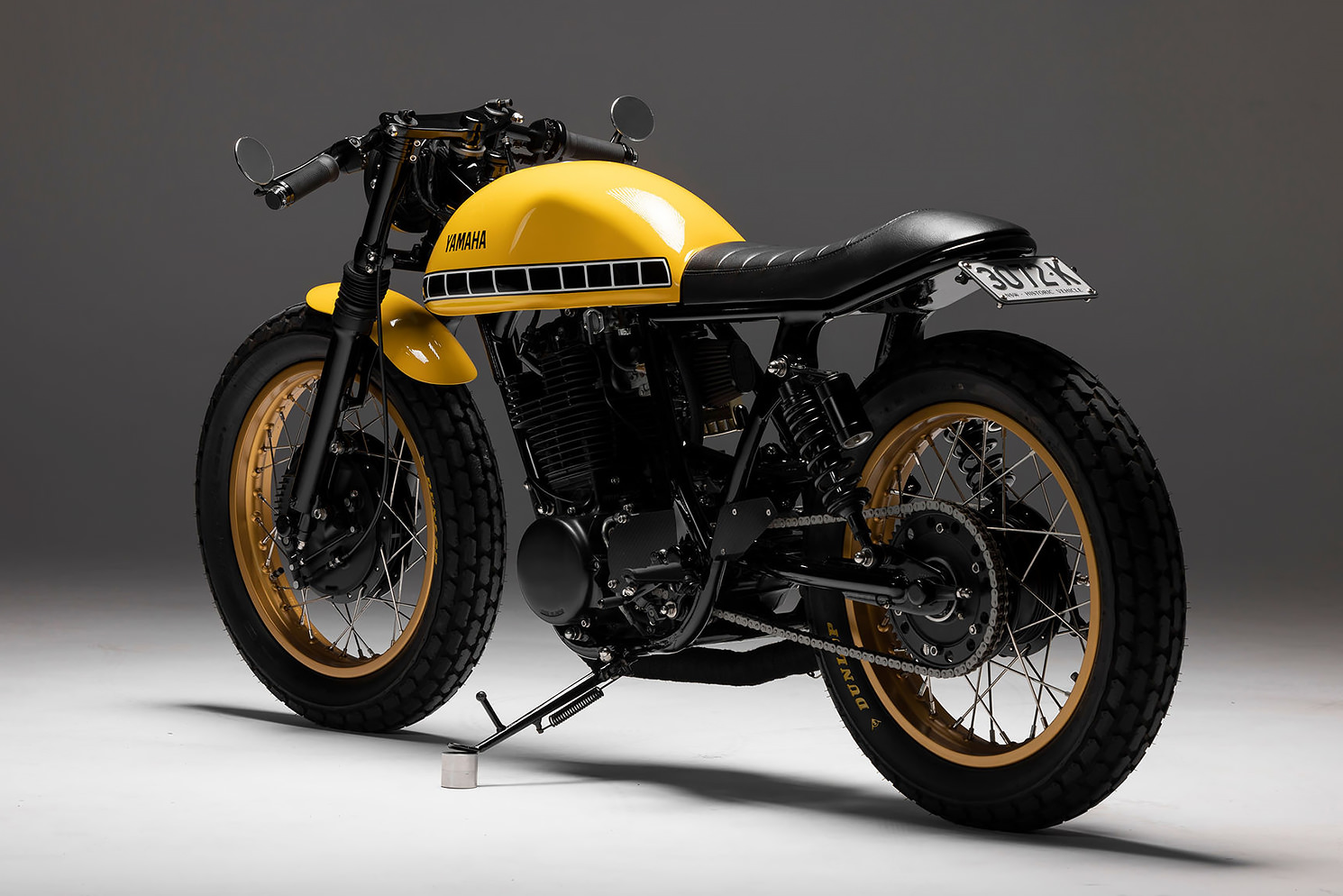
Built as a standard, air-cooled commuter for decades, Yamaha’s SR400 wasn’t exactly destined for greatness. After years of dutiful servitude, this particular SR was a little hacked up and rough around the edges, but still mechanically sound when it rolled into Queensland, Australia, based Black Cycles. Its owner, Joel Birch, frontman of the California metalcore band The Amity Affliction, had a simple request: It had to be all black, ‘murdered out.’
In the hands of Noel Muller, this first iteration of the SR came to life blacked out from front to back, with some of Birch’s artwork gracing the tank and fender. Unfortunately Birch was forced to sell the bike shortly after it was finished due to the effects of COVID on the music industry, but it fortuitously landed in the hands of a Sydney-based collector named Simon.
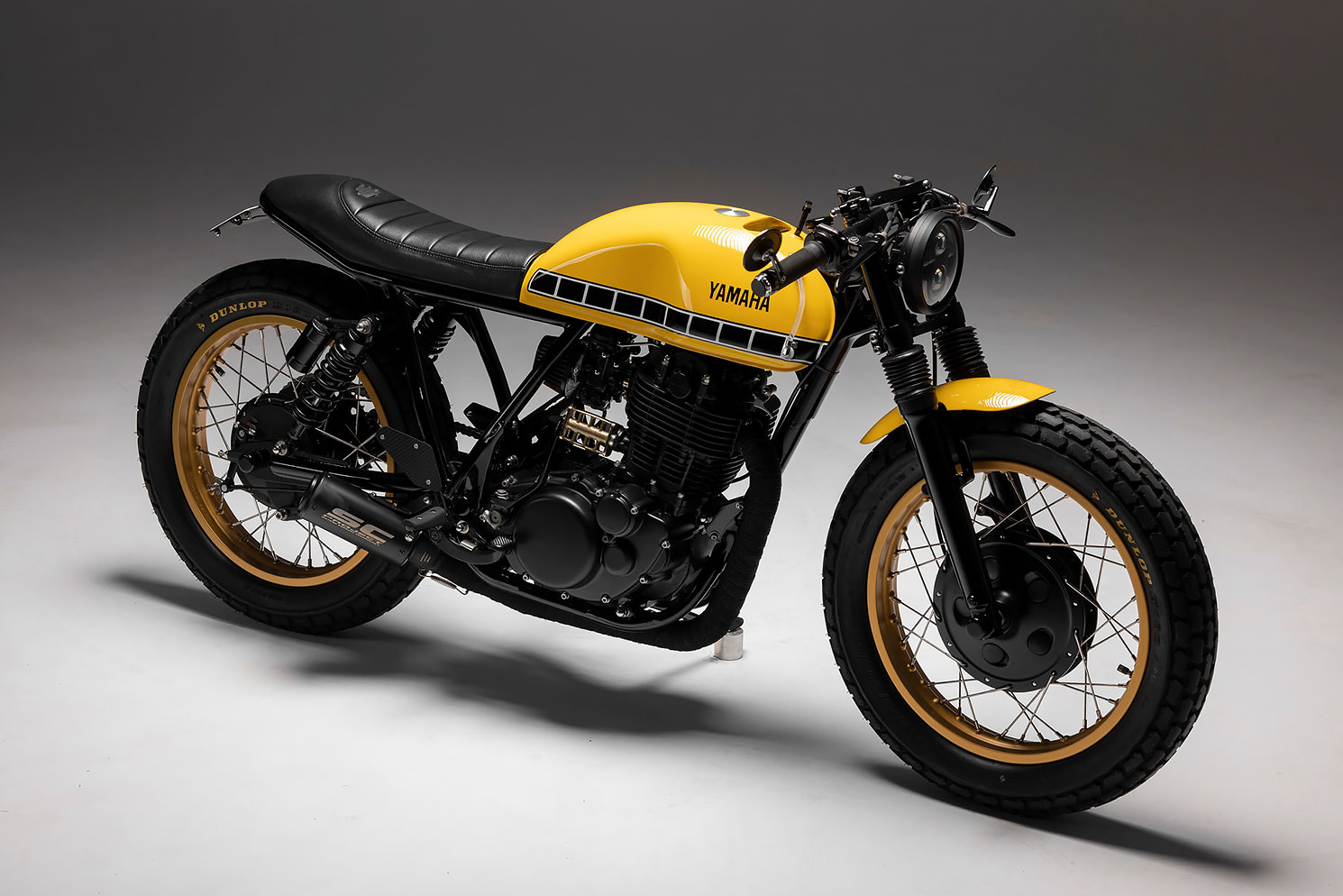
With several other Black Cycles builds in his collection, Simon knew just where to go when he decided to revamp the SR400 once again. While much of the previous work could be salvaged, this iteration turned back the clock to the 80s, starting with a modified Benelli Mojave tank coated in Yamaha’s nostalgic yellow and speed block finish.
Muller then disassembled the SR’s wheels and opted for a nostalgic set of gold alloy rims with stainless spokes, and wrapped them in Dunlop K180 flat track rubber. The front suspension was professionally lowered by Chris at XXX Rated Suspension, and paired with a custom aluminum front fender and short billet rear shocks.
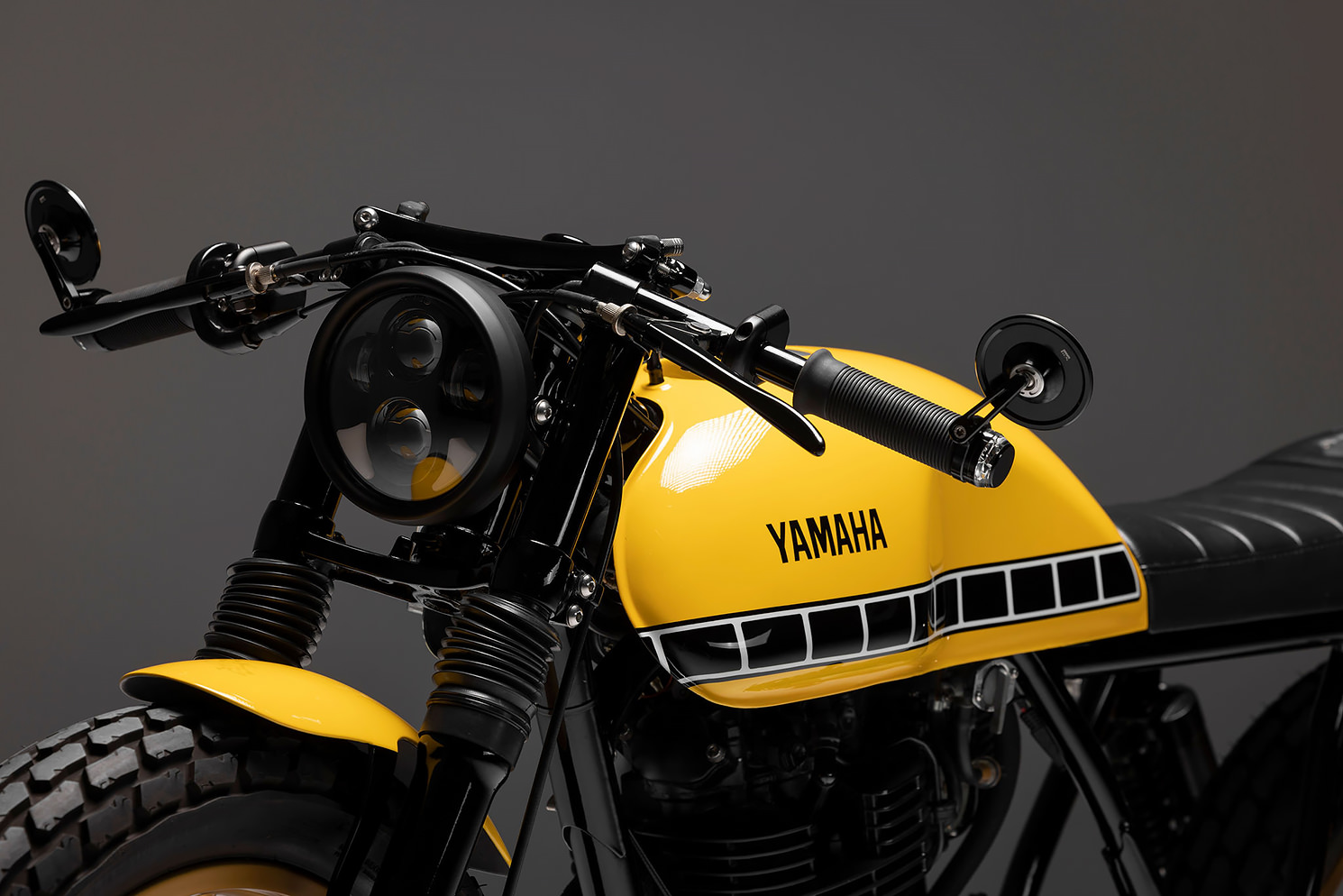
For controls, Muller threw an assortment of Motogadget parts at the build, including mo.lock keyless start, Motoscope Pro digital speedometer, bar-end indicators and glassless mirrors. Next, the triple trees were smoothed, and lever perches were welded and smoothed onto the clip-on bars for a clean custom look.
With the saddle recovered scrambler style, and a knuckle-duster kick pedal installed, this SR400 eschews convention, and is ready for 40 more years of fun. [Via]
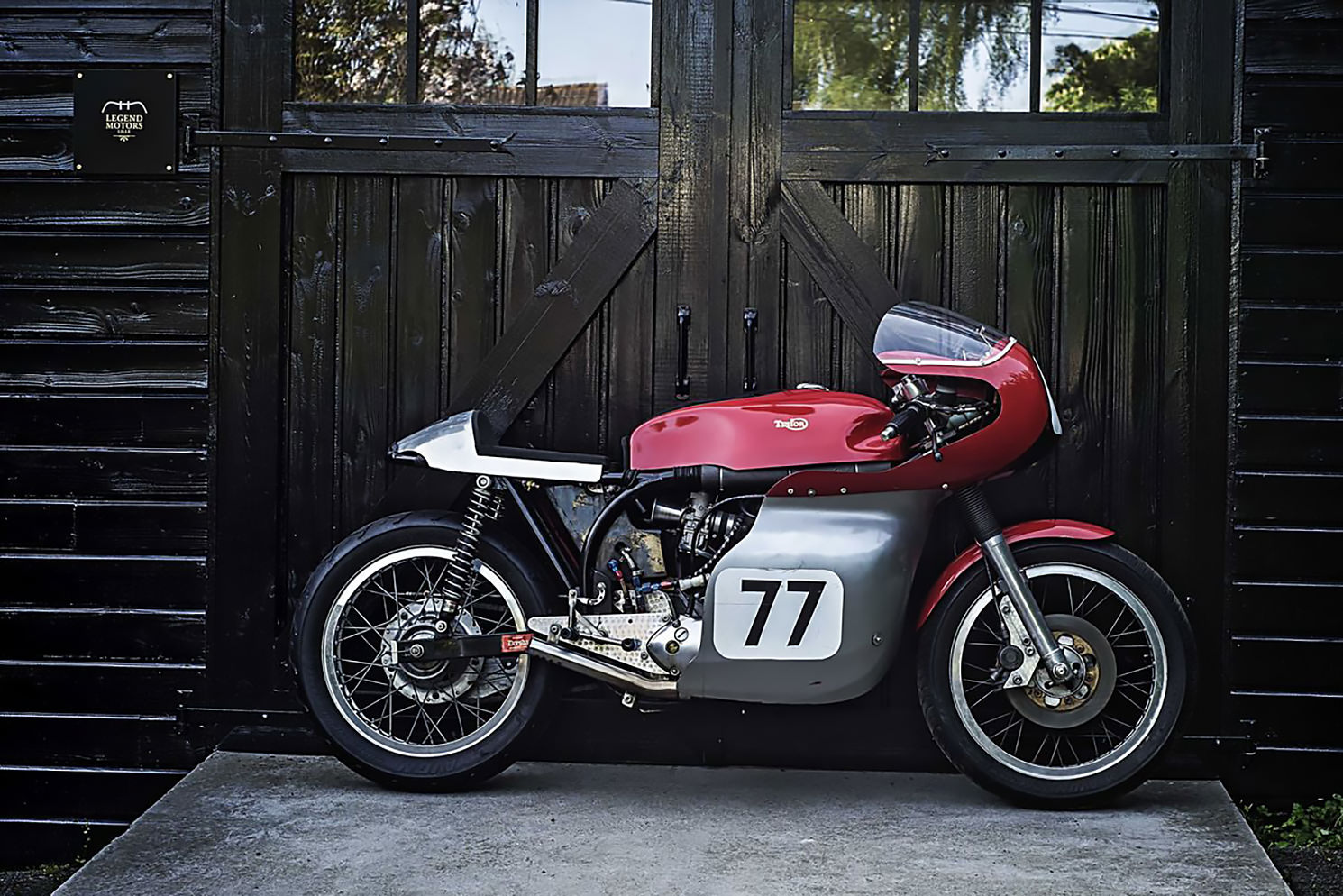
Nourish-Powered Triton Manx Norton or Triumph, why not both? Back in the 1960s and 70s, Triumph had the better engine, but Norton made the superior chassis. So in typical British cottage industry fashion, it was pretty commonplace to slap a more reliable Triumph parallel twin in your Norton Featherbed frame and go racing—common enough to coin the term Triton.
Coming to us from Legend Motors in Les Weppes, France, is a Nourish-modified Triton race bike that’s sure to draw a crowd at any vintage weekend.
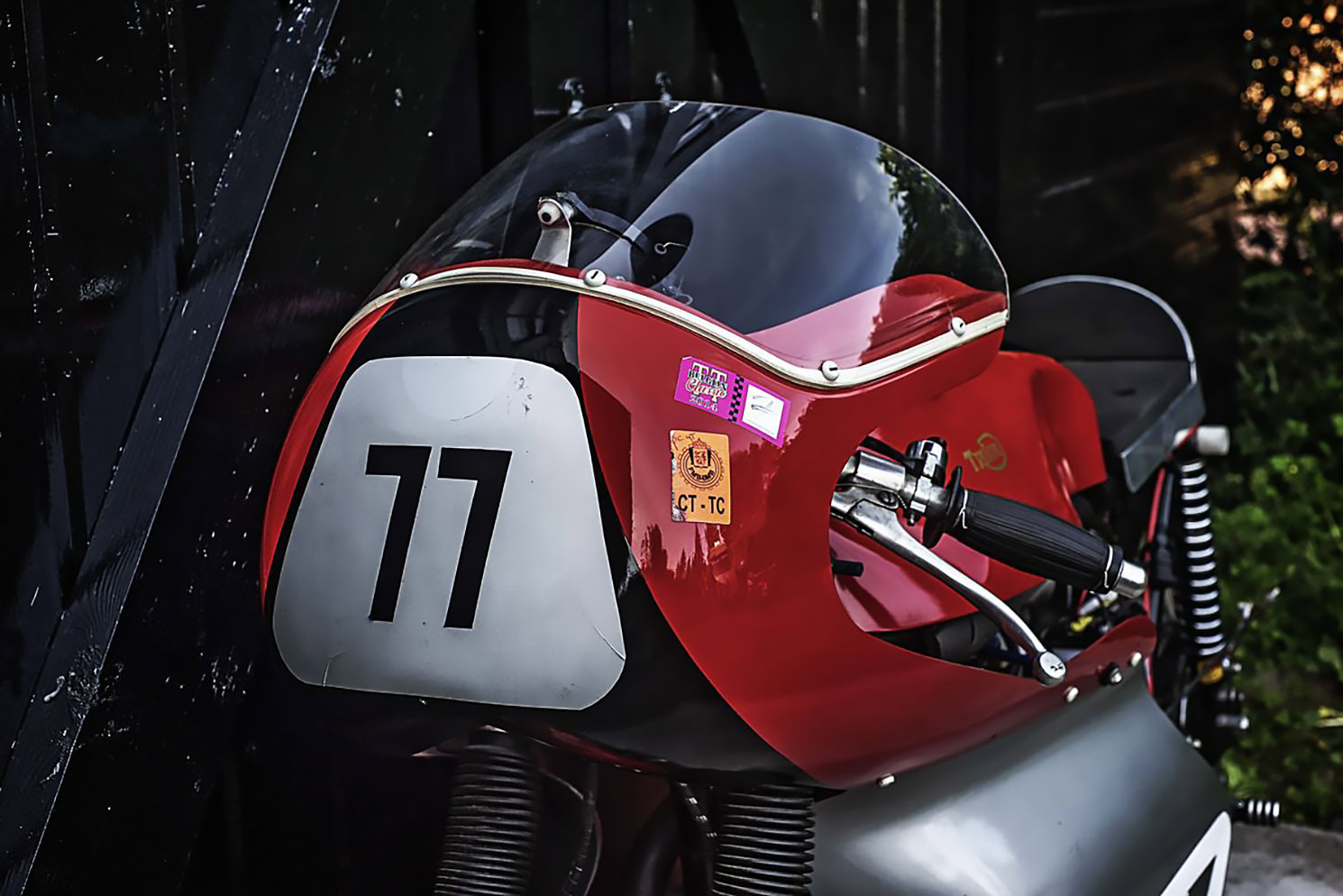
Summarized in three rough sentences by the seller, it’s fair to say that details are slim on this one, but here’s what we know. The bike is based on a Norton Manx chassis, which was considered the backbone of Norton privateer racing in the 1950s and early 60s. Hiding under the polyester bodywork is a Marzocchi 38 mm front, and a pair of adjustable Falcon shocks suspend a period Dresda swingarm.
Things get even more interesting under the saddle, in the form of a heavily-modified Triumph that contains most of this bike’s speed secrets. The engine is based on TR7RV case halves, but almost the entire top end and rotating assembly is based on trick 850 cc Nourish parts, including the crankshaft, connecting rods and ‘Z cams.’
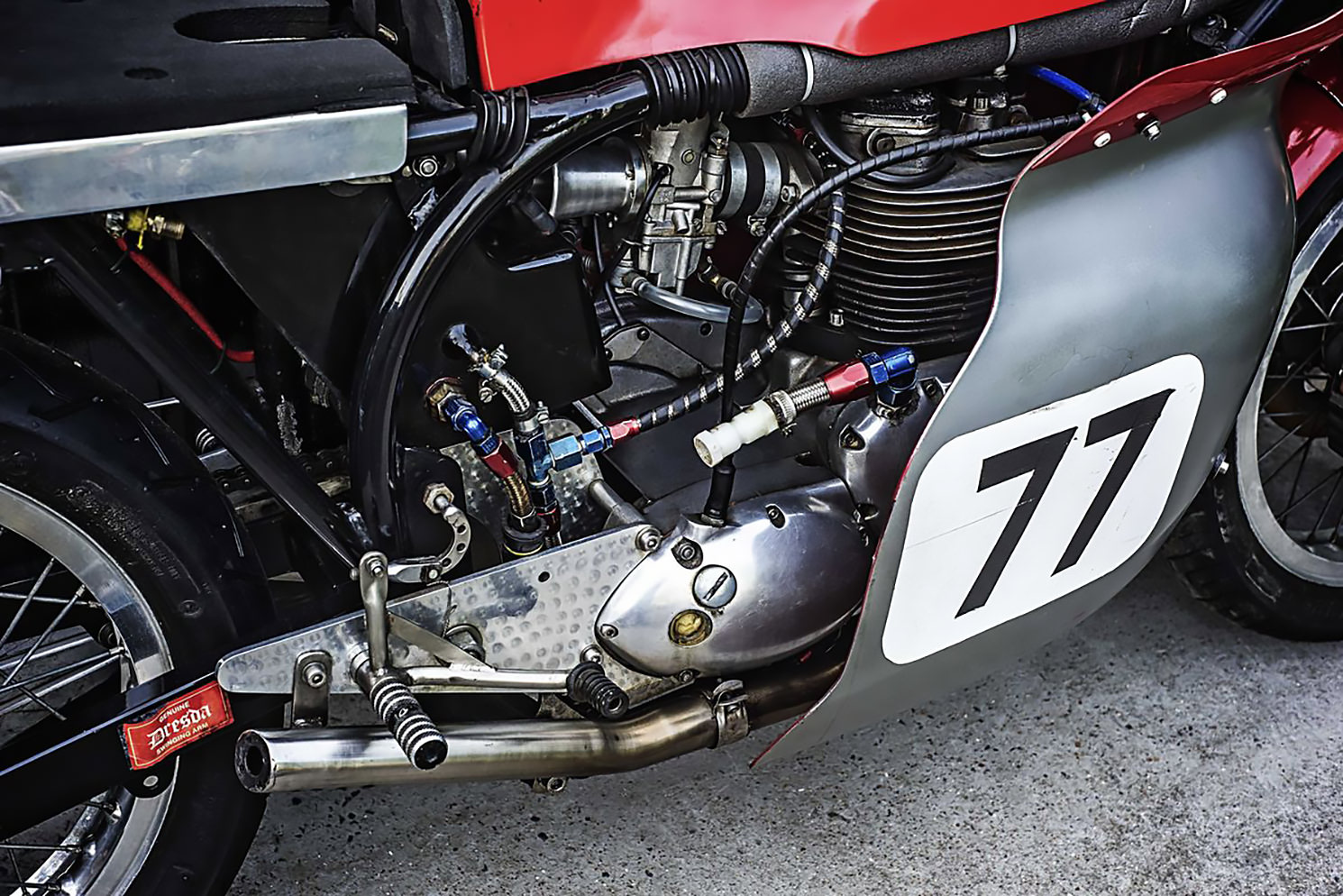
A gritty racer in the 1940s and 50s who raced in the Isle of Man TT and excelled in sidecar grasstrack, Dave Nourish later became known as the man when it came to tuning Weslake racing engines. Nourish could tune a Weslake engine better than the Weslake works team, and that’s exactly what happened when Peter Collins won the 1976 Speedway World Championship.
Nourish picked up where Weslake left off with the four-valve single, buying up all the assets and developing the engines. Weslake asked Nourish personally to develop and build their eight-valve twins, and Nourish went on to run his own business Nourish Racing Engines.
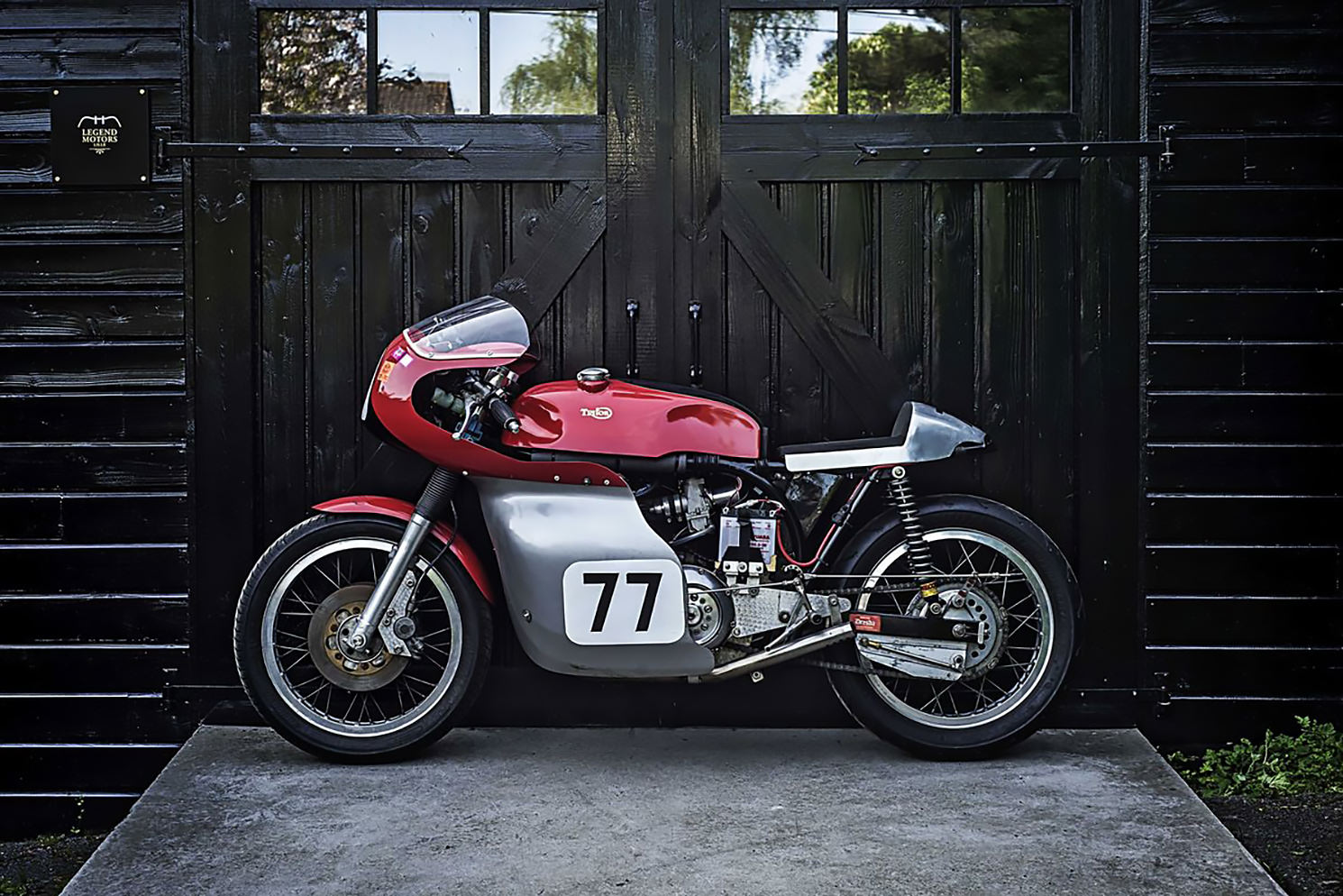
The history of this particular racing machine is unclear from the ad, but in the sum of its parts, some clear pedigree is apparent. Whether the trusty steed of an old weekend warrior, or a convincing period-inspired build constructed by talented hands, this one’s a cool piece. [More]
